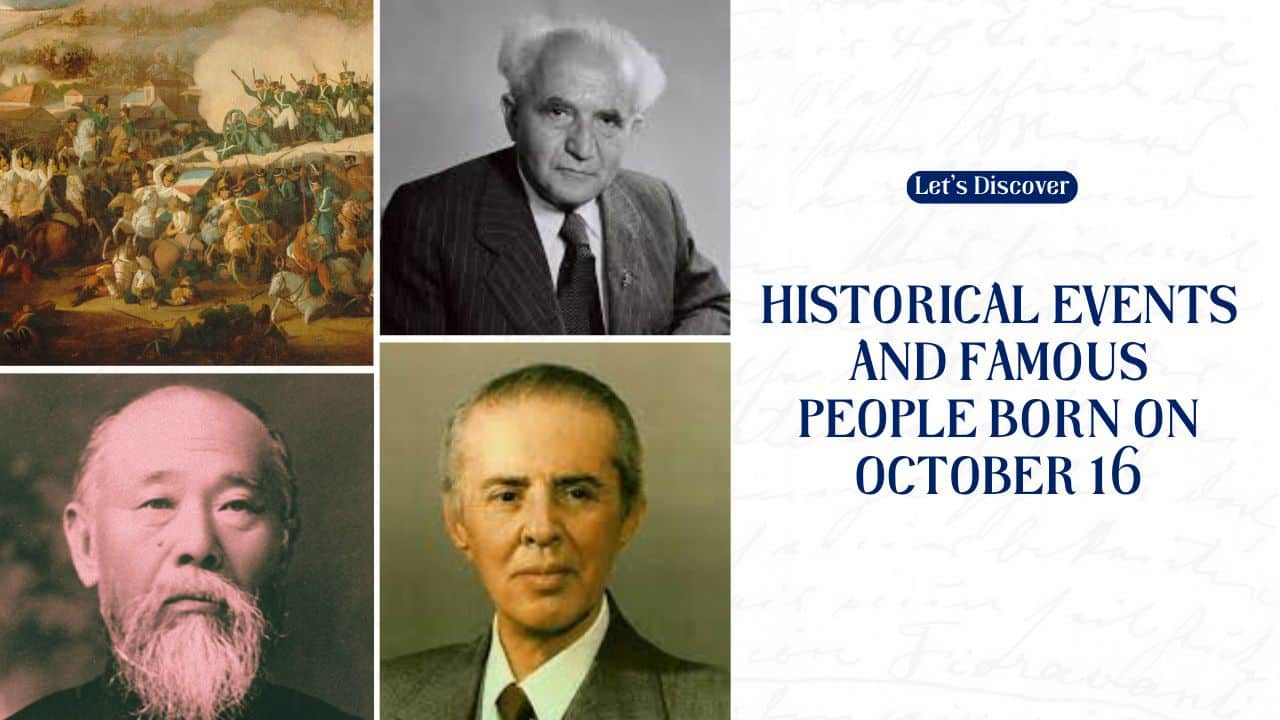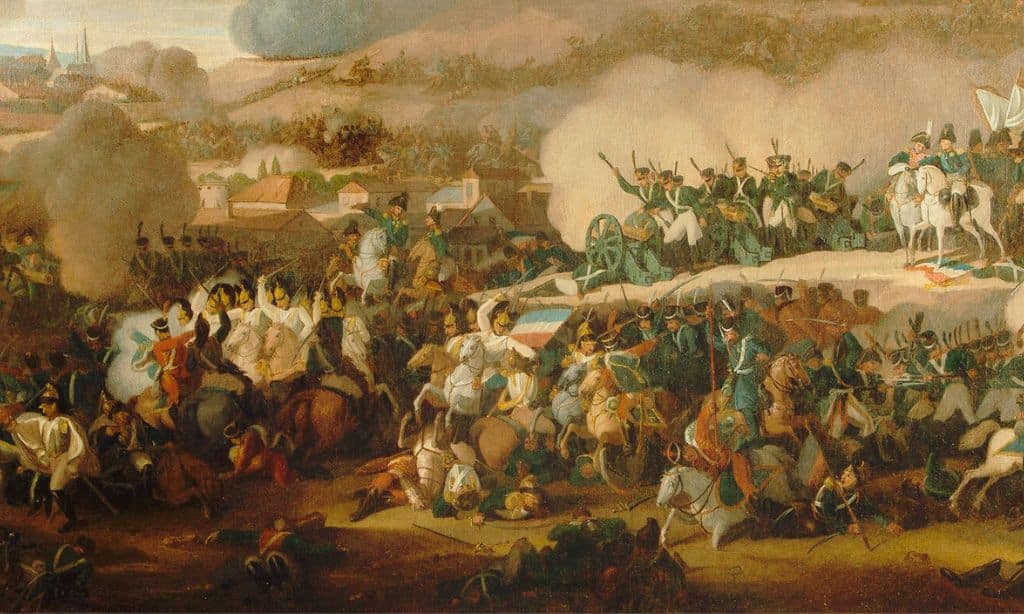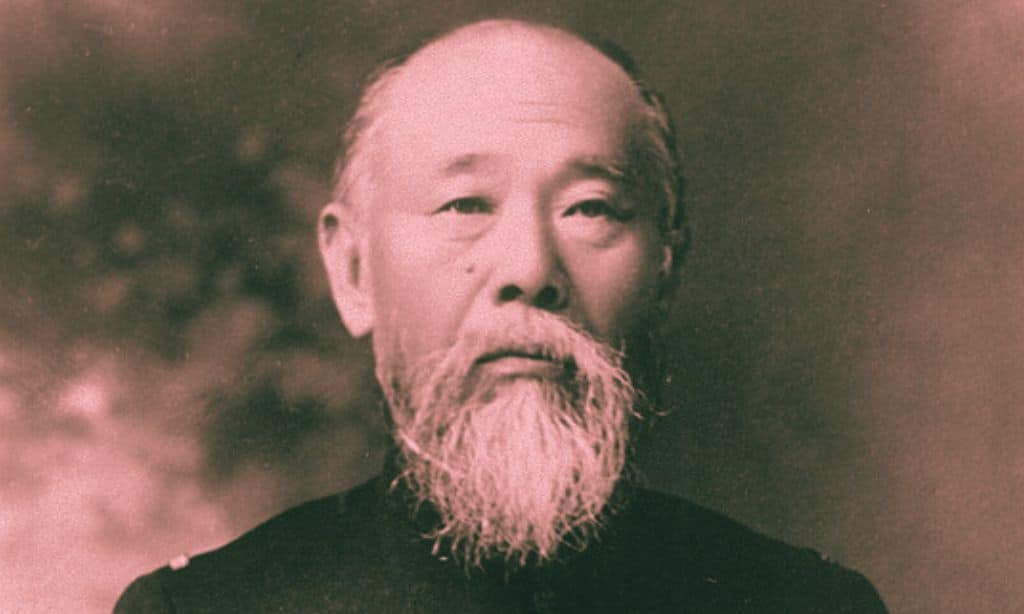October 16 is a day that has seen many important events in history. It’s also the birthday of some very interesting people. In this article, we’ll learn about big things that happened on this day and about people who were born on October 16. From explorers and battles to music and politics, this day has many stories to tell.
Historical Events of October 16
1492: Columbus Anchors in the Bahamas
On October 16, 1492, Christopher Columbus and his ships stopped at an island he called “Fernandina.” We now know this island as Long Island in the Bahamas. This was part of Columbus’s first voyage to the Americas.
Columbus thought he had reached Asia, but he was actually in the Caribbean. This stop was one of several islands Columbus visited on this trip. He was looking for a new way to reach Asia by sailing west.
This event was very important in world history. It led to more exploration by Europeans and changed the lives of people in the Americas forever. It started a time of discovery, but also a time of problems for the native people of the Americas.
1813: Battle of Leipzig
On October 16, 1813, a very big battle started near Leipzig, Germany. This battle is sometimes called the “Battle of Nations” because so many countries were involved. It was part of the wars against Napoleon Bonaparte.
On one side was Napoleon and his French army. On the other side were armies from Prussia, Austria, Russia, and Sweden. This was the biggest battle in Europe before World War I. More than 600,000 soldiers fought in it.
The battle lasted for four days. In the end, Napoleon’s army lost. This was a turning point in the war. After this loss, Napoleon had to leave Germany and go back to France. It was the beginning of the end for Napoleon’s empire.
1912: Premiere of “Pierrot Lunaire”
On October 16, 1912, a new piece of music called “Pierrot Lunaire” was played for the first time in Berlin, Germany. It was written by Arnold Schoenberg, who was a famous composer.
“Pierrot Lunaire” was very different from other music at that time. It used a special way of singing called Sprechstimme, which is between speaking and singing. The music didn’t follow the usual rules and sounded strange to many people.
This piece of music was very important. It helped start a new way of making music called “atonal” music. Even though some people didn’t like it at first, “Pierrot Lunaire” is now seen as one of the most important pieces of music from the 20th century.
1934: Start of Mao’s Long March
On October 16, 1934, a very important event in Chinese history began. Mao Zedong and about 85,000 soldiers of the Red Army started a long journey called the Long March.
The Long March happened because the Chinese Communist Party was being attacked by the government army. Mao and his followers had to leave their base and travel to a safer place. They walked more than 6,000 miles over 370 days.
This journey was very hard. Many people died or left along the way. By the end, only about 5,000 people were left. But the Long March made Mao Zedong the leader of the Communist Party. It helped the Communists win control of China years later.
1962: Beginning of the Cuban Missile Crisis
On October 16, 1962, something happened that made many people afraid there might be a nuclear war. President John F. Kennedy was shown pictures that proved the Soviet Union was putting missiles in Cuba.
This was during the Cold War when the United States and the Soviet Union were enemies. Having Soviet missiles so close to the United States was very dangerous. President Kennedy had to decide what to do.
This was the start of 13 very tense days called the Cuban Missile Crisis. The whole world was worried there might be a nuclear war. In the end, the Soviet Union agreed to remove the missiles, and war was avoided. But it showed how dangerous the Cold War was.
Famous Birthdays on October 16
Noah Webster (1758-1843)
Noah Webster was born on October 16, 1758. He is famous for creating Webster’s Dictionary, which is still used today.
Webster thought American English should be different from British English. He wrote a book to teach people how to spell American words. Later, he worked for 28 years on his big dictionary. It had 70,000 words!
Webster’s work helped make American English more uniform. His dictionary is still very important and is updated with new words all the time.
Here’s a brief biography of Noah Webster:
| Fact | Information |
|---|---|
| Born | October 16, 1758 |
| Birthplace | West Hartford, Connecticut, USA |
| Died | May 28, 1843 |
| Known for | Creating Webster’s Dictionary |
| Other work | Helped create copyright laws in the US |
| Legacy | His name is still used on many dictionaries |
Itō Hirobumi (1841-1909)
Itō Hirobumi was born on October 16, 1841. He was a very important person in Japanese history and became Japan’s first Prime Minister.
Itō started as a samurai, but he traveled to Europe to learn about modern governments. When he returned to Japan, he helped change the country from an old-fashioned system to a modern one. He wrote Japan’s first constitution.
Itō was Prime Minister four times. He helped make Japan a strong country that could compete with Western powers. However, he was killed in 1909 by a Korean nationalist who didn’t like Japan’s control over Korea.
Here’s a brief biography of Itō Hirobumi:
| Fact | Information |
|---|---|
| Born | October 16, 1841 |
| Birthplace | Hagi, Japan |
| Died | October 26, 1909 |
| Known for | First Prime Minister of Japan |
| Major achievement | Writing Japan’s first constitution |
| Other roles | Resident-General of Korea |
David Ben-Gurion (1886-1973)
David Ben-Gurion was born on October 16, 1886. He became the first Prime Minister of Israel and is seen as the founder of the modern state of Israel.
Ben-Gurion was born in Poland but moved to Palestine (now Israel) when he was young. He worked hard to create a Jewish state. When Israel became independent in 1948, he became its first Prime Minister.
As Prime Minister, Ben-Gurion helped build up the new country. He worked on bringing Jewish people from all over the world to Israel. He also made the Israeli army strong. Many people in Israel still see him as a great leader.
Here’s a brief biography of David Ben-Gurion:
| Fact | Information |
|---|---|
| Born | October 16, 1886 |
| Birthplace | Płońsk, Poland |
| Died | December 1, 1973 |
| Known for | First Prime Minister of Israel |
| Time as Prime Minister | 1948-1953, 1955-1963 |
| Legacy | Considered the “Founder of the State of Israel” |
Enver Hoxha (1908-1985)
Enver Hoxha was born on October 16, 1908. He became the leader of Albania after World War II and ruled the country for a long time.
Hoxha led the Communist Party in Albania during World War II. After the war, he became the leader of the country. He ruled Albania for more than 40 years.
Under Hoxha’s rule, Albania became very isolated from other countries. He was strict and didn’t allow many freedoms. He made Albania the only officially atheist country in the world. His time as leader had a big impact on Albania that lasted even after he died.
Here’s a brief biography of Enver Hoxha:
| Fact | Information |
|---|---|
| Born | October 16, 1908 |
| Birthplace | Gjirokastër, Albania |
| Died | April 11, 1985 |
| Known for | Leader of Albania |
| Time in power | 1944-1985 |
| Policy | Strict communist rule and isolation |
Günter Grass (1927-2015)
Günter Grass was born on October 16, 1927. He was a German writer who won the Nobel Prize in Literature.
Grass wrote many books, but his most famous one is called “The Tin Drum.” This book talked about Germany’s difficult history in a new and interesting way. It made people think about the past in different ways.
Besides writing books, Grass also made art and spoke out about political issues. He won the Nobel Prize in 1999 for his writing. Many people think he was one of the most important German writers of the 20th century.
Here’s a brief biography of Günter Grass:
| Fact | Information |
|---|---|
| Born | October 16, 1927 |
| Birthplace | Free City of Danzig (now Gdańsk, Poland) |
| Died | April 13, 2015 |
| Known for | Writer and artist |
| Famous book | “The Tin Drum” |
| Award | Nobel Prize in Literature (1999) |
Takeaway
October 16 has been a day of big events and important births throughout history. We’ve seen how it was a day when explorers found new lands, big battles were fought, and important political events happened. We’ve also learned about some very different people who were born on this day – from dictionary makers and prime ministers to strict rulers and creative writers.
Each of these events and people has left a mark on our world. From Columbus’s voyage that changed the map to Ben-Gurion’s work in creating Israel, from Webster’s words that we still use to Grass’s stories that make us think, October 16 has given us a lot to remember and think about.
Learning about history helps us understand our world better. It shows us how things have changed over time and how the actions of people in the past still affect us today. So next time October 16 comes around, remember all these interesting events and people!
References:
- Morison, S. E. (1942). Admiral of the Ocean Sea: A Life of Christopher Columbus. Little, Brown and Company.
- Chandler, D. G. (1966). The Campaigns of Napoleon. Scribner.
- Simms, B. (2014). Europe: The Struggle for Supremacy, from 1453 to the Present. Basic Books.
- Auner, J. (2003). A Schoenberg Reader: Documents of a Life. Yale University Press.
- Short, P. (2001). Mao: A Life. Henry Holt and Company.
- Stern, S. M. (2005). The Week the World Stood Still: Inside the Secret Cuban Missile Crisis. Stanford University Press.
- Kendall, J. (2011). The Forgotten Founding Father: Noah Webster’s Obsession and the Creation of an American Culture. Penguin.
- Hamada, T. (2007). Prince Saionji: Japan. Haus Publishing.
- Kurzman, D. (1983). Ben-Gurion: Prophet of Fire. Simon and Schuster.
- Pipa, A. (1990). Albanian Stalinism: Ideo-Political Aspects. East European Monographs.
- Mews, S. (2008). Günter Grass and His Critics: From The Tin Drum to Crabwalk. Camden House.








































